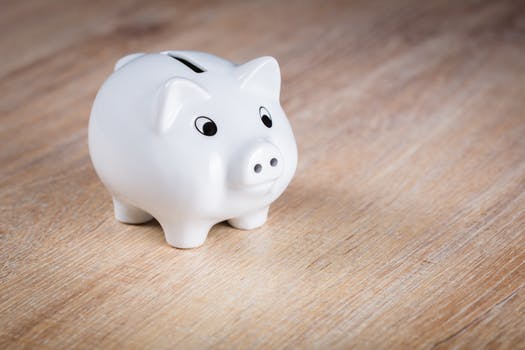Nowadays, doing your part to improve social and environmental standards has become more mainstream and a lot easier to do. After all, you can now fight deforestation right from the comfort of your own home — a major plus for those who enjoy partaking in more subtle forms of activism. But did you know, enacting social change and protecting the environment is also as simple as choosing the right bank?

Whether you own your own business or have a steady nine-to-five, it’s safe to say you’d like to be the judge of where your hard-earned dollars go. Big banking institutions like Wells Fargo, Citibank, JPMorgan Chase, and Bank of America don’t just safely store your money, they also use it for loans and to invest in a wide variety of corporations and other projects. Unfortunately, these investments aren’t always ethical, and many of these institutions tend to ignore environmental and social issues in order to rake in the highest profits. The good news is there are responsible banks out there, such as credit unions or smaller, local banks, that put people — and the earth — before profit. But before we get into that, let’s first explore three things your bank could be funding using your money.
Environmental Degradation
By now, you may have heard about the Dakota Access and Keystone XL pipelines. After they were previously stalled by the Obama administration, Trump expedited their approval earlier this year, sparking public outrage and protests on behalf of environmental groups, activists, and Native Americans. The Dakota Access pipeline (which is now operational) was set to carry crude oil across the Midwest and through a contested portion of the Standing Rock Sioux Tribe’s reservation — running straight through a sacred burial ground and threatening the reservation’s water supply. Backlash over the pipelines extended to the financial institutions backing them, leading the cities of Seattle, Washington and Davis, California to pull $3 billion and $124 million, respectively, from Wells Fargo — a major lender to the Dakota Access pipeline. The Keystone pipeline’s massive 210,000-gallon oil leak that occurred earlier this month is further proof of how much of a burden the extractive industries are on the planet and how necessary it is for big banks to stop funding such environmentally destructive projects.
Wars and Weapons
It’s no secret that some financial institutions in America (and overseas) are investing in companies that produce weapons of war. Sadly, war is quite lucrative. Arms-producing and military service companies like Lockheed Martin and BAE Systems are bringing in billions of dollars each year and guess who’s investing in them? Big banks. In a report of over 390 financial institutions that have funded nuclear weapons since 2013, Bank of America, JPMorgan Chase, Citigroup, and Wells Fargo ranked in the top 10 of highest investors — a major reason to divest from unethical banks!
Private Prisons
Police brutality, mass incarceration, and harsh sentencing laws have made criminal justice reform a hot topic lately. But another issue that’s been lost in the headlines is for-profit prisons. The GEO Group and CoreCivic, two of the largest privatized correctional companies in America, have been able to stay in business all thanks to — you guessed it — big banks. Private prisons allow these companies to directly profit off of mass incarceration. Such an incentive for for-profit prisons to keep inmates imprisoned for longer periods of time can lead to a slew of ethical issues. Private corrections companies no doubt have more reason to lobby for harsher sentencing laws, making them a prime example of why criminal justice reform initiatives are so desperately needed and why big banks should stop funding such companies.
Where Should You Keep Your Money?
Thankfully, ethical banks do exist in the form of credit unions and community banks. Credit unions are locally managed and member-owned banks that typically have far better interest rates and lower loan rates because they’re not run by outside investors looking to maximize profit. Credit unions are also far more transparent than bigger banks by holding annual meetings for members to attend and by giving members access to regularly updated financial reports. Of course, becoming a member of a credit union is a tad bit more difficult than walking into a bank and opening an account. Eligibility for a credit union account typically involves living or working in the same city the credit union is located, but eligibility may vary.
Community banks are another terrific alternative to big banks because their primary goal is to serve their local community. Community banks support the local economy, are involved in local causes, and genuinely care about their customers’ needs. In order to find the right bank for you, don’t be afraid to ask questions! After you’ve settled on whether or not your chosen bank will meet all of your financial needs, ask if they’re investing ethically. Find out whether the financial institution has invested in fossil fuels or if they support renewable sources of energy. Are they funding any projects that aren’t socially responsible? Although switching banks may seem daunting (here are a few helpful tips on how to get it done!), at the end of the day you’ll feel good knowing your money isn’t funding unethical ventures.
Have you tried switching to an ethical bank?
Also by Audrey: Full, Shiny Hair, Flawless Skin: 3 Ways To Add Flax & Chia Seeds To Your Beauty Regimen
Related: What Happened When I Decided to Live on Less Money
How to Adjust Your Budget and Save Money
Get more like this–sign up for our newsletter for exclusive inspirational content!
__

